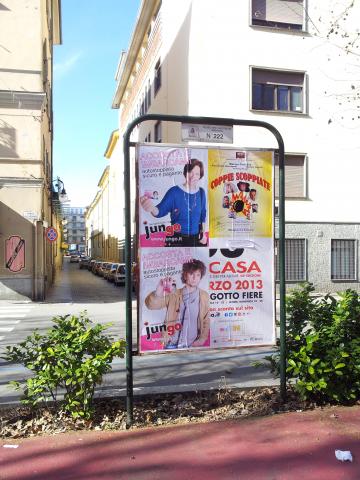 In the case of Asti the mobility survey revealed that around 50% of the employees working at the BIZ of Corso Alessandria in Asti come from villages and towns close to Asti. Providing an alternative to the private car for these employees is rather complex due to their geographical dispersal. Nonetheless, carpooling appeared to be a valid mobility solution as it offers the flexibility of the private car and at the same time reduces the number of cars on the roads.
In the case of Asti the mobility survey revealed that around 50% of the employees working at the BIZ of Corso Alessandria in Asti come from villages and towns close to Asti. Providing an alternative to the private car for these employees is rather complex due to their geographical dispersal. Nonetheless, carpooling appeared to be a valid mobility solution as it offers the flexibility of the private car and at the same time reduces the number of cars on the roads.
At the BIZ of Asti the local stakeholders chose to adopt Jungo, a carpooling solution experimented in another Italian Province with very encouraging results.
A very important characteristic of Jungo that was taken into consideration was that it guarantees a safer service to those that offer or request a lift. The security offered by Jungo is based on three areas:
1. “Control”: a Criminal Records Check of new applicants at the point of registration. The Jungo card is issued only to people without a criminal record. This procedure is repeated every year at the renewal of the membership.
2. “Tracking”: all lifts are tracked . This is achieved by the user sending an sms to the Jungo monitoring system the moment they get into a car.
3. “Preliminary investigations”: Jungo operates a call-centre where members can report problems and misbehaviours. Such reports are further investigated and if necessary action is taken.
In addition, women have an extra safety measure which is the choice to share the trips only with women.
Jungo has a number of other positive characteristics:
- Allows the use of the “the existing traffic” according to the needs of the user, without having to organise anything beforehand.
- Promotes a change in behaviour without imposing anything (you use Jungo when you want to).
- Offers a cost reimbursement to the drivers who offer lifts.
- Exploits an existing resource that is not currently used: the tendency of adopting a simple and positive behaviour, which is currently not popular due to safety reasons.
- Is in accordance with other policies for the reduction of traffic.
- Is auto-regulated (the users tend to adapt their mobility behaviour according to the efficiency of Jungo at the different times of day and the various travel routes.
- Tends to decrease traffic (when the flow is higher the waiting time is less; this means that Jungo is more efficient during the pick hours for traffic and therefore, tends to decrease traffic during that time).
- The mode “jungo-asymmetric” allows the initiative to reach a considerable level of efficiency without the need to achieve an important critical mass.
- Jungo aids social networking as it brings people together.
Information and communication activities are of great importance for the success of Jungo. In the case of Asti the implementation of this mobility measure was accompanied with a communication campaign that included:
- a press conference at the town of Asti;
- the dissemination of a newsletter including detailed information on Jungo;
- advertising at local newspapers;
- direct information at the companies and the employees of the BIZ through the organisation of mobility information days;
- communication through Facebook.
The results of this mobility measure are encouraging. Within two weeks of its implementation the mean time of waiting for obtaining a “lift” is 21.2 minutes (for a male). The aim is to get the waiting time down to 6.6 minutes following the example of Trento (Italy) that has also adopted this initiative and therefore there will be further communication and promotion of Jungo in Asti.
